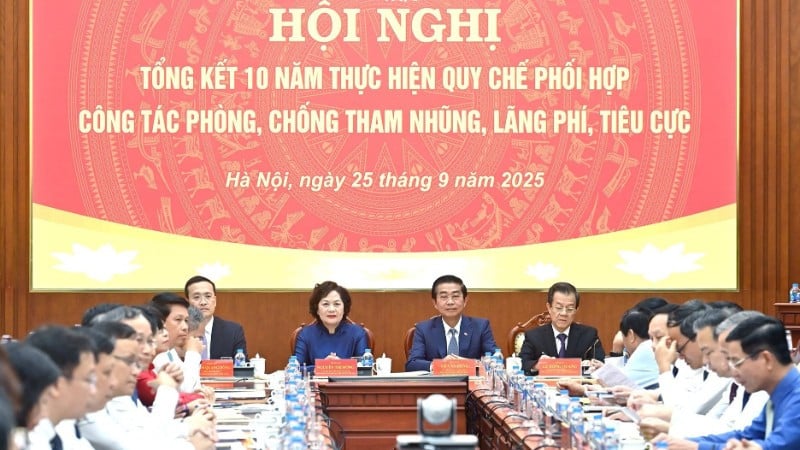
Lesson 2: Shifting the focus to proactive and preventive
With the motto of "handling one case, warning the whole region, the whole field", taking strict handling to promote prevention, General Secretary To Lam directed decisively, shifting the focus to being proactive, warning of violations early, from afar, not letting small violations accumulate into big mistakes.
Early detection, early treatment
According to the Central Internal Affairs Committee, during the 13th Congress term, competent authorities have dismissed, suspended, resigned, or dismissed more than 40 officials under the Central Committee's management, including Politburo members, Secretariat members, and key officials of the Party and State. In the first nine months of 2025, 19 cases of officials and former officials under the Central Committee's management were disciplined, including three cases of criminal prosecution.
The fight against corruption in the XIII term continued to demonstrate the determination of "no forbidden zones, no exceptions", and discovered and strictly handled many major cases with shocking scope of influence and damage figures. Particularly for the two cases that occurred at the Joint Stock Company of the Group: Thuan An, Phuc Son and related agencies and organizations, the Central Inspection Committee completed 8/8 inspections when there were signs of violations against eight party organizations, disciplined 76 party organizations and 130 party members; proposed the Central Committee, the Politburo, and the Secretariat to discipline nine party organizations and 11 party members. At the same time, the Central Inspection Committee directed 13 standing committees and provincial-level inspection committees to inspect when there were signs of violations against the party committees of the People's Committees of provinces and cities. Up to now, localities have basically completed the inspection. The prosecution agencies have completed the first-instance trial of these two key cases.
The above figures reflect a painful reality: the fight against corruption is always carried out continuously and without rest; many cases and incidents have been strictly handled, many officials and party members have committed violations, regardless of who they are, but serious cases continue to occur, requiring strong changes in thinking and methods to treat "both the tip and the root" of corruption.
Proactively detecting and preventing violations early and from afar is a consistent principle in the Party's inspection work. According to Deputy Head of the Central Inspection Commission Ha Quoc Tri, in preventing and combating corruption, if we only focus on handling violations, then when the authorities get involved, the situation of losing cadres has occurred; the Party organization has lost its fighting power; and the economic and resource losses of the country are difficult to overcome.
From the case that occurred at Lilama Company, Lao Cai, nine officials including the former Provincial Party Secretary, former Provincial People's Committee Chairman and seven former department and branch leaders had to receive sentences; the case related to Cao Tien Doan (aka Mr. Doan) in Thanh Hoa, 11 defendants were prosecuted, in which many former provincial leaders were disciplined by the Secretariat by being expelled from the Party. Comrade Ha Quoc Tri said that the longer the violations are allowed to continue, the greater the accumulated consequences will be, and the more the people's trust will be eroded. Abnormal manifestations in financial management, land, mineral resources, etc., if not monitored and prevented in time, the consequences of violations will be unpredictable. Therefore, in parallel with thoroughly handling violations, it is necessary to strengthen thematic supervision, regular supervision, focusing on sensitive areas that are prone to negativity.
A new point noted in the transition to proactive status is that the regular monitoring of the implementation of resolutions and conclusions of the Politburo and the Secretariat is carried out as soon as new documents are issued. In which, focusing on monitoring the implementation of organizational restructuring, the Committee has established working groups to monitor decentralization, delegation of authority, and division of authority in the fields of financial management, construction, land, environment, industry and trade, justice, etc., in order to quickly detect and propose immediate solutions to difficulties.
Improve the quality of monitoring and local control work
The work of monitoring, grasping the situation of the area, and regular supervision aims to promptly detect shortcomings, defects, and signs of violations. However, looking back at recent cases shows that the work of monitoring and grasping the situation of the area is still limited. Many violations have been prolonged, with very serious consequences, but have been slowly discovered, leading to complicated developments of shortcomings and violations of party organizations and party members; serious violations have occurred at many levels, sectors, and fields, causing extremely large damage.
According to comrade Trieu Van Chien, Head of the Department of Areas II, Central Inspection Committee, there are many reasons, including a number of cadres monitoring the area lacking the approach and skills to collect documents, analyze and process information. In the new conditions, the political system has been resolutely streamlining the apparatus, holding party congresses at all levels, and simultaneously making breakthroughs in digital transformation, developing science and technology and economic growth... Many difficult and new tasks are set for each cadre monitoring the area, requiring them to improve their capacity and qualifications, innovate, proactively grasp the situation; coordinate with party organizations, party members, and relevant agencies to collect information, synthesize, analyze, evaluate, comment, and identify signs of violations, especially urgent and prominent issues to promptly advise on inspection and handling.
One of the fundamental solutions implemented to prevent violations early and from afar is to strengthen control over the declaration of assets and income of people with positions and powers; publicity, transparency, and accountability in public service activities. There have been many Party documents and State laws that specifically and detailedly regulate this issue, but the effectiveness is not high. Regarding the case that occurred at Xuyen Viet Oil Company, former Secretary of Ben Tre Provincial Party Committee Le Duc Tho seriously violated Party regulations and State laws, regulations on what Party members are not allowed to do and the responsibility to set an example in declaring and making assets and income transparent; explaining the origin and fluctuations of assets dishonestly, incompletely, and not in accordance with regulations.
To enhance the effectiveness of this work, the Politburo issued Decision No. 56-QD/TW dated February 8, 2022 on the Regulations on coordination between agencies controlling assets and income; Conclusion No. 105-KL/TW dated December 4, 2024 on continuing to strengthen the Party's leadership in declaring and controlling asset declaration. The Central Inspection Commission is assigned to preside over and coordinate with the Government Inspectorate, the Ministry of Public Security, the Ministry of Finance, the State Bank of Vietnam and other agencies and organizations, depending on their functions, tasks and powers, to coordinate in controlling the assets and income of cadres, civil servants and public employees.
Along with the strong application of digital transformation, step by step building a digital database on assets and income of cadres and party members linked with taxes, banks, land, notaries, etc., inter-sectoral coordination helps verify the legality and fluctuations of assets more quickly and accurately. Instead of mainly checking when there are signs of violations, now the form of random inspection has been added. When detecting cadres making false declarations or failing to explain the origin of assets, the control agency can propose administrative handling, if necessary, it will consider transferring the file to the investigation agency for criminal handling.
Synchronous coordination creates a strong shift from form to substance with a quick response mechanism, improving the effectiveness of preventing and combating TNLPTC, contributing to realizing new viewpoints and new thinking in the Party's fight against TNLPTC: Prevention is the main, fundamental, long-term; detection and handling are important and breakthrough.
(To be continued)
Lesson 1: Identifying signs and violations
Source: https://nhandan.vn/bai-2-chuyen-manh-trong-tam-sang-chu-dong-phong-ngua-post919479.html


![[Photo] Da Nang: Water gradually recedes, local authorities take advantage of the cleanup](https://vphoto.vietnam.vn/thumb/1200x675/vietnam/resource/IMAGE/2025/10/31/1761897188943_ndo_tr_2-jpg.webp)
![[Photo] The Third Patriotic Emulation Congress of the Central Internal Affairs Commission](https://vphoto.vietnam.vn/thumb/1200x675/vietnam/resource/IMAGE/2025/10/30/1761831176178_dh-thi-dua-yeu-nuoc-5076-2710-jpg.webp)
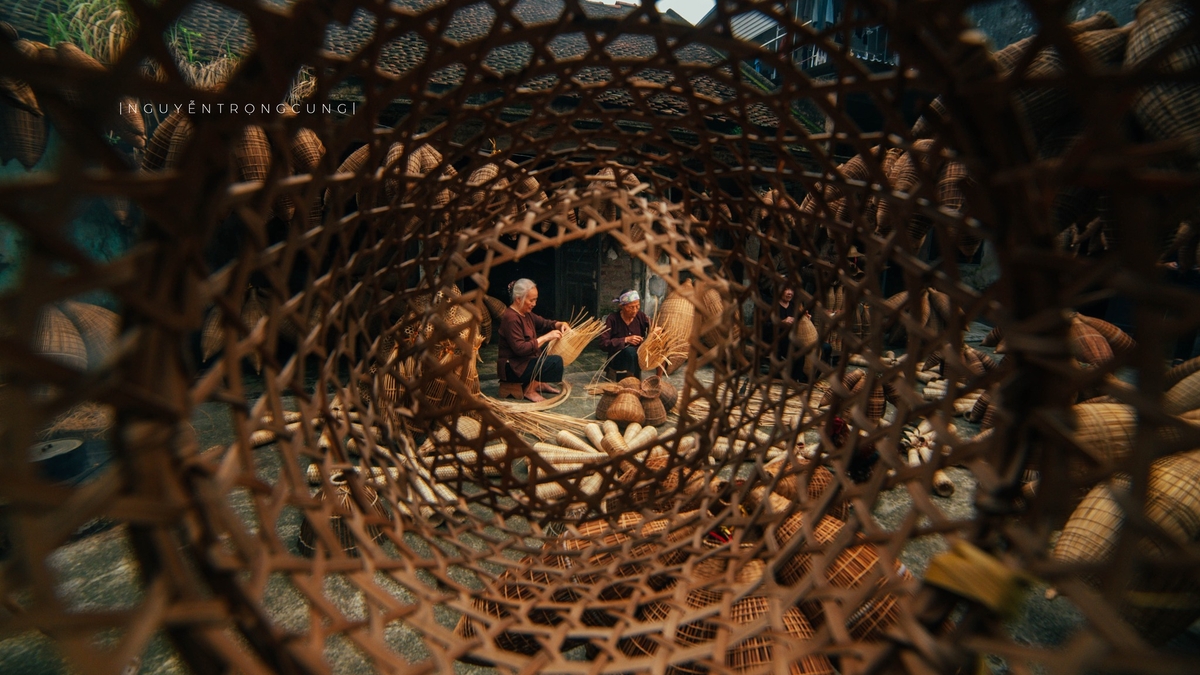
![[Photo] Prime Minister Pham Minh Chinh attends the 5th National Press Awards Ceremony on preventing and combating corruption, waste and negativity](https://vphoto.vietnam.vn/thumb/1200x675/vietnam/resource/IMAGE/2025/10/31/1761881588160_dsc-8359-jpg.webp)


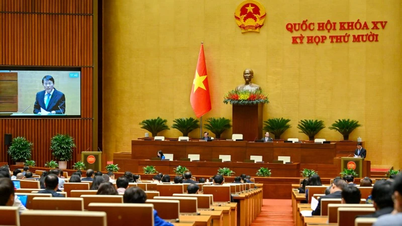
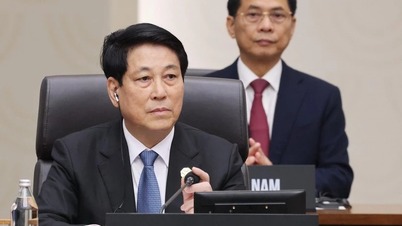
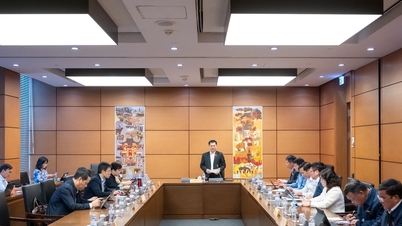

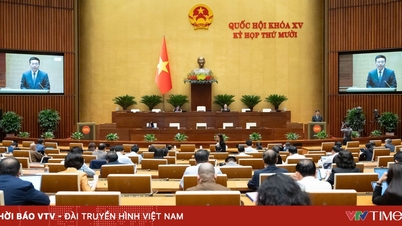

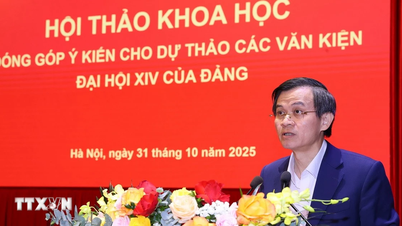

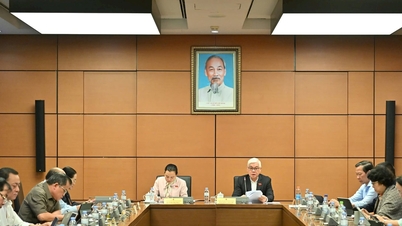




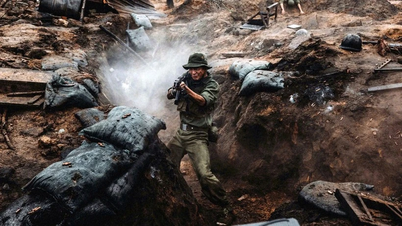

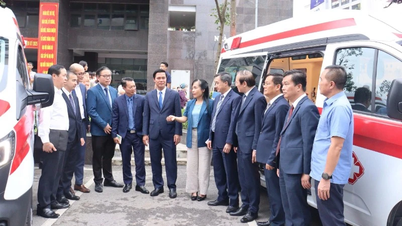
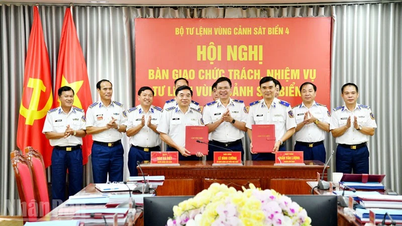
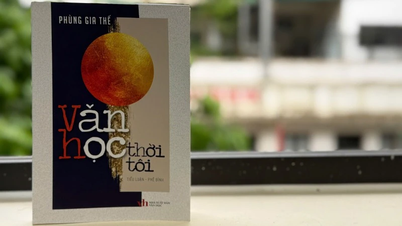
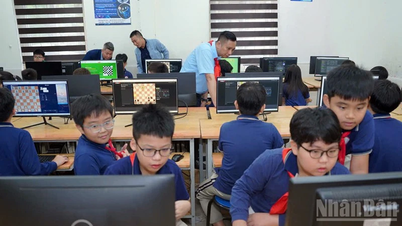



















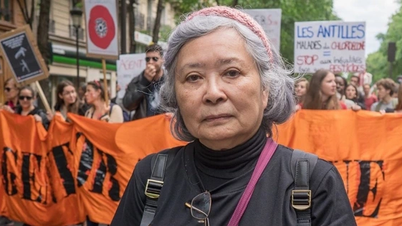

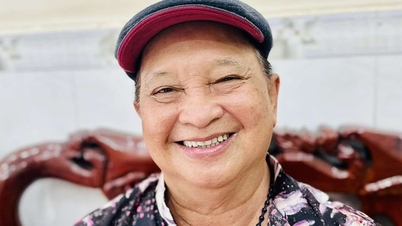




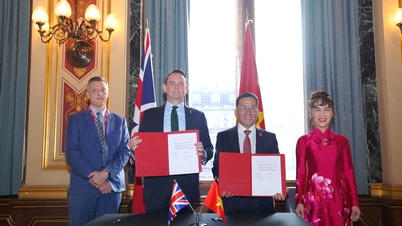

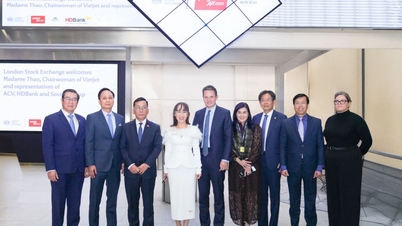










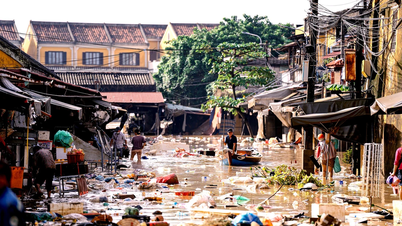



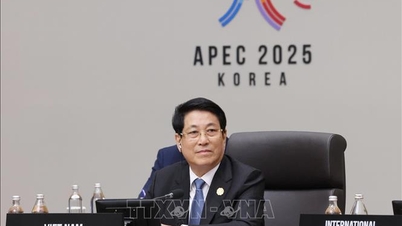
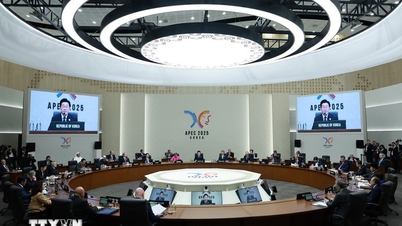
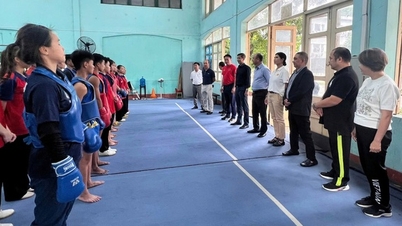

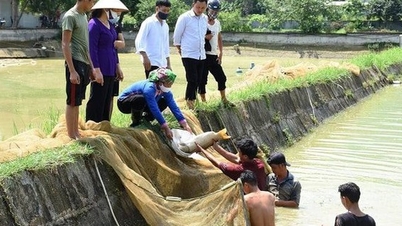
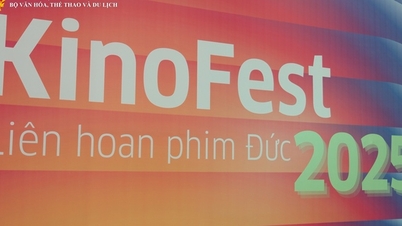
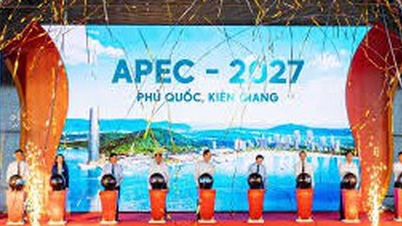

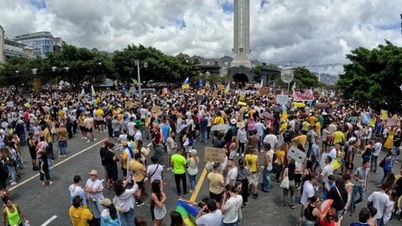
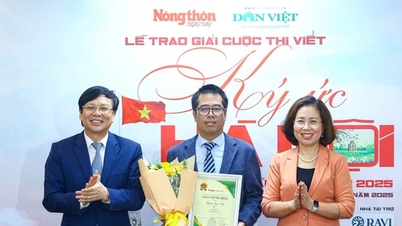

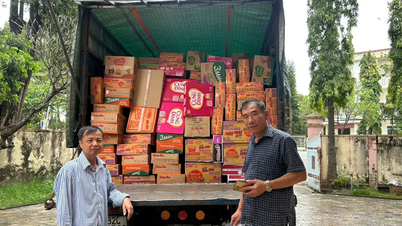
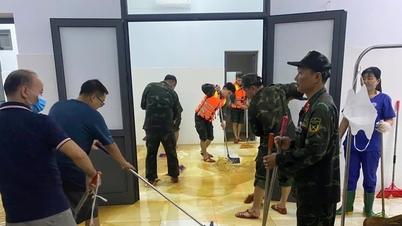

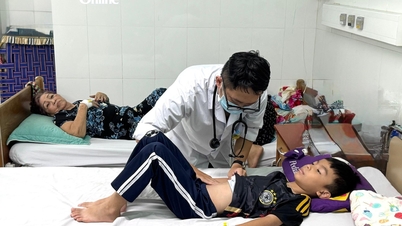

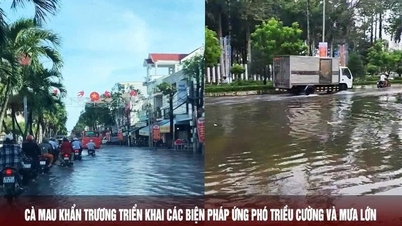

















Comment (0)